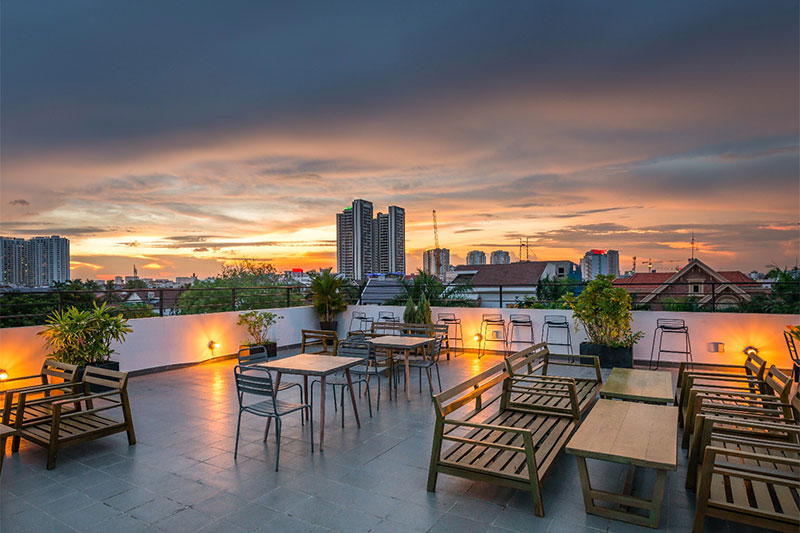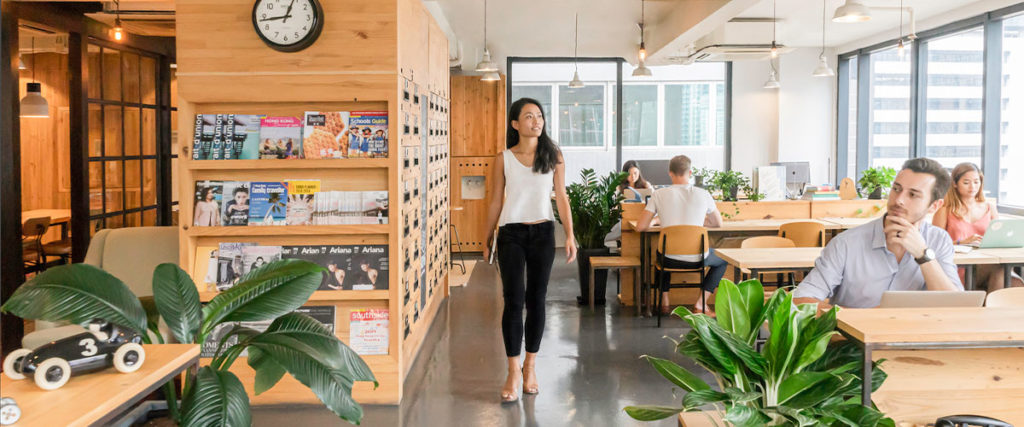With the rise of remote working, industry experts weigh in on the future of work from travel to PropTech at the Connected Cities Conference by KPMG.
At the Connected Cities Conference by KPMG earlier this week, Colliers Managing Director Nigel Smith and Marriot VP Ramesh Daryanani virtually shared their industry expertise as to how the future of work will shape up in the wake of the world’s largest work-from-home experiment. Here are their top takeaways.
Asian corporates are more open to non-traditional work arrangements
Remote working has been proven as a successful business model – and flexible working, which enables corporates to easily set up satellite offices, could become a major driver of change in the working world.
Going forward, Nigel predicts that Asian corporates will increasingly adopt a combination of traditional office space, for permanent staff, and flexible leases, for rapid-growth and shorter-term staff.
“The next step beyond leasing traditional office space is then to go flexible,” Nigel explains. “We’ve seen the move from wanting to own to lease, understanding the flexibility – and that’s really what a lease is; it gives you ultimate flexibility.” Calling coworking the “new norm,” he cites the rise in flexible workspace operators in China, Singapore, and other cities as a key indicator that flexible workspaces will become more mainstream.

Business travel will continue, despite COVID-19
Although COVID-19 travel restrictions have dampened business travel considerably, both Nigel and Ramesh are optimistic that business travel will continue to be a major part of international development in Asia Pacific in the long-term.
“One issue we have in real estate, specifically, is that most investors and occupiers want to go and see the physical space,” Nigel says. Additionally, face-to-face interactions are crucial for building trust. “Especially in the Asian context, when you show up for a business meeting and ask for that business and you do it in person, that’s going to trump anyone else who’s doing it virtually,” Ramesh explains.
However, as expected, technology will continue to drive increased adoption of virtual meetings and non-essential travel may decline.
Hygiene is the biggest consumer concern
When it comes to travel, hygiene is the current top consumer concern – and rightfully so, with 58% of consumers rating it as their biggest worry, according to a Marriott survey.
“We’ve never used electrostatic sprayers before, but now, that’s in use. And a lot of innovation has come through because that’s what the customers want,” Ramesh explains of how Marriott has modified its operations to accommodate changing client needs.

Coworking will thrive, not just in the CBD, but also more decentralised areas
Talk of the ‘hub-and-spoke’ business model – where companies have one main office in the CBD and more satellite offices further out – has increased, and Nigel predicts that coworking will increasingly shift towards more suburban areas.
“There will be less traditional office space – traditionally, in Asia, it’s three, six, sometimes nine-year leases,” Nigel relates. “There will be more flexible space, not just in the CBD areas, but in decentralised areas, possibly across regions. The Greater Bay Area might be an option as well.”
PropTech will help firms attract competitive talent
Not just an enabler for remote work, technology – specifically property technology (PropTech) – promises to radically change working environments for the better.
“For example, in our office, we monitor C02 levels. You need the right amount of oxygen in your office, [as well as] lighting levels, pollution levels,” Nigel explains. Offering offices that focus more on employee wellness, firms will be better placed to hire competitive talent.
Aside from these PropTech apps, he also believes that property management software, such as that which gives tenants access to food, meeting rooms, and discounts, will also speed up efficiency and be increasingly adopted in the future.
More landlords will shift towards a more diversified mixed-use portfolio
As the real estate industry scrambles to take stock of changing circumstances, more landlords will begin to create a mixed-use portfolio to hedge against risk.
“If, for example, traditional office space goes down to 50%, more landlords will have to accommodate coworking spaces in their buildings or within their portfolio,” Nigel explains. “If you take that to the next degree, what’s stopping you from having a car that allows you to work anywhere, or a hotel?”
Once equipped with a mixed-use portfolio, landlords will be better equipped to offer additional flexibility to tenants – “So I think the next level is how far can the landlord be flexible to accommodate the tenants’ needs,” Nigel speculates.

Asia’s economy is well placed to make a strong recovery
With China’s economic recovery already ahead of the curve, according to a June report by Fitch Ratings, Asia’s bullish economy is well-positioned to make a strong recovery.
“There’s a lot of consumption in the region. We’re not too dependent on the other regions – at least on the travel and hotel side, there’s a lot more demand coming through from inter-regional or regional travel,” Ramesh shares on the hospitality industry.
Similarly, Nigel is optimistic that “Asia corporates are going to come out of this a lot faster and Asian consumer demand is going to grow the economy a lot faster,” citing the Greater Bay Area as a potential driver for growth.
Related Articles
Future of Work Report: Will Remote Working Continue Post-COVID-19?
Work Culture in Japan: The 5 Crucial Differences You Should Know About





